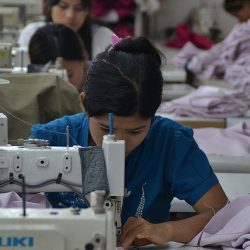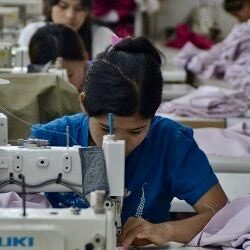Coronavirus crisis causing huge problems for Asian textile factories

The textile factories in Asia are facing major problems now that the coronavirus crisis is causing the large-scale cancellation of orders by clothing brands. Some customers are even refusing to pay for products ordered a while back that are now ready for shipment. Countless jobs are at stake.
In Cambodia alone, more than a hundred factories have been forced to shut down temporarily, according to reports in the Dutch financial newspaper FD. As a result, some 60,000 workers – including many permanent employees – have lost their jobs, reports the Cambodian Labour Confederation. Moreover, their number could increase considerably in the coming period.
The Worker Rights Consortium, which researches working conditions in factories worldwide, reports that at least 13 clothing brands – rumoured to include C&A, Primark and Tesco – have recently cancelled orders and are now refusing to pay for those orders or are demanding a discount.
Millions of jobs at stake in textile factories
There are similar problems elsewhere in Asia. Human Rights Watch, for example, calculated that 70,000 jobs are at risk in Myanmar, while in Bangladesh that figure stands at more than a million. 70% of the textile factories in Vietnam have had to cut jobs in the past month, and it is feared that this percentage will increase even further in the coming months.
The workers in Asia can expect little help from their governments. According to the FD, there are few social safety nets and the money is simply not available to pay the many thousands of workers the minimum wage. In Cambodia, the agreement reached between the government and employers means that unemployed workers from the textile industry receive barely 40% of the country’s minimum wage.
Inadequate contracts
Trade unions and activists are of the opinion that clothing brands should shoulder their responsibility. However, the brands fall back on the contracts they have signed with suppliers. Aruna Kaskhyap of Human Rights Watch sees this as a clear indication that these contracts are inadequate. “In times of crisis, brands cannot simply be relieved of their responsibility,” says Kaskhyap in the FD.









